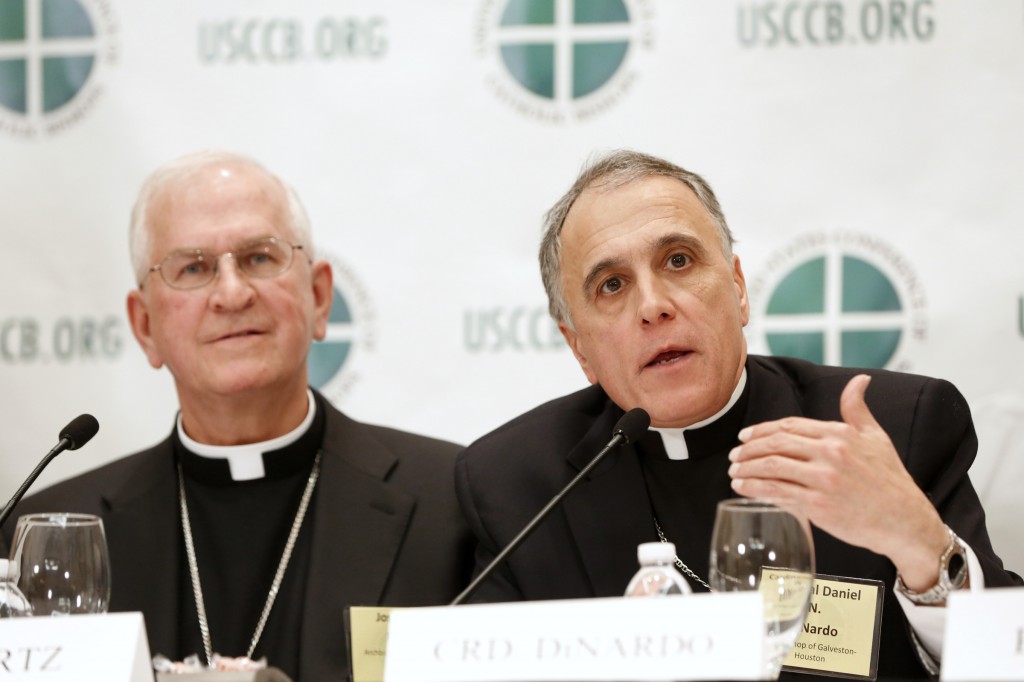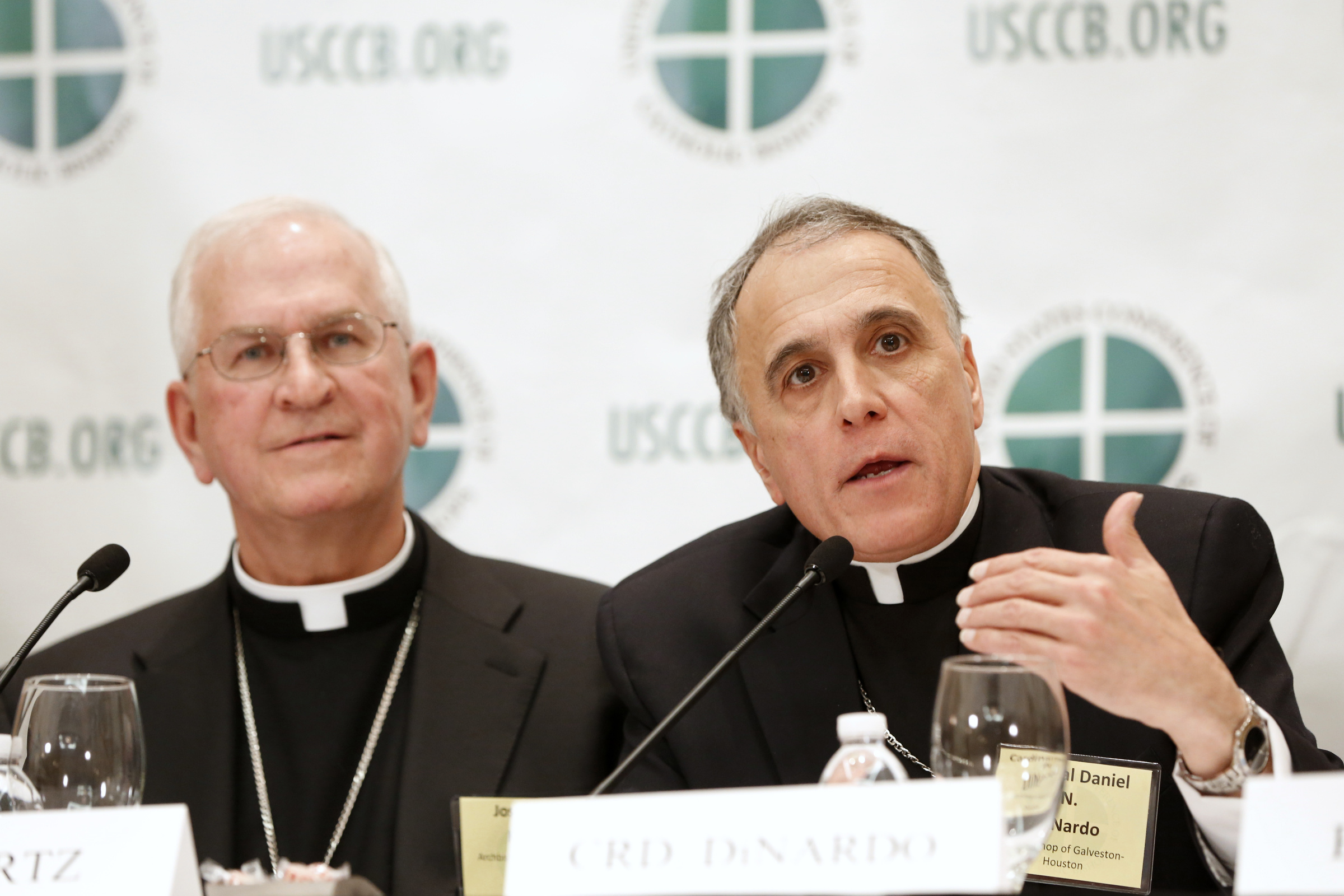
BALTIMORE (CNS) — In a “special message” released Nov. 13, the U.S. bishops reiterated their objections to the Affordable Care Act’s requirement that employee insurance include contraceptive coverage and said they remain “united in our resolve to resist this heavy burden and protect our religious freedom.”
The message was released one day after the conclusion of the Nov. 11-12 public portion of the U.S. Conference of Catholic Bishops’ fall general assembly in Baltimore. The bishops met in executive session Nov. 13.
A media release with the message explained that USCCB regulations regarding statements and publications define a “special message” as a statement, only issued at general meetings, that the general membership considers appropriate in view of the circumstances at the time. It was passed unanimously.
The message opened with a listing of various matters the bishops had dealt with during their assembly, including a response to the Philippine typhoon, some liturgical issues and an update on church assistance to Haiti.
“We stand together as pastors charged with proclaiming the Gospel in its entirety,” it said. “That Gospel calls us to feed the poor, heal the sick and educate the young, and in doing so witness to our faith in its fullness.”
The Constitution and the law protect the church’s freedom to answer that call to serve through various apostolates, the statement said. “Yet with its coercive HHS mandate, the government is refusing to uphold its obligation to respect the rights of religious believers.”
The mandate was issued by U.S. Department of Health and Human Services as part of the health care law. It requires most religious and other employers to provide health insurance coverage for contraceptives, sterilization and abortifacient drugs and devices even if the employer is morally opposed to such services. It includes an exemption for some religious employers that fit its criteria. The mandate does not include a conscience clause for employers who object to such coverage on moral grounds.
There also is an accommodation for some employers to use a third party to pay for the objectionable coverage.
The bishops’ message recapped the battle between the USCCB and the federal government over the mandate. It reiterated points made in a 2012 statement issued by the USCCB Administrative Committee titled “United for Religious Freedom.”
The special message outlined three objections the bishops still have, including that it establishes what they called “a false architecture of religious liberty that excludes our ministries and so reduces freedom of religion to freedom of worship.”
It “compels our ministries” to provide coverage that “violates our deeply held beliefs,” and the bishops said they also object to “our faithful people in business” being required “to act against our teachings, failing to provide them any exemption at all.”
There are multiple lawsuits working their way through the courts that have been filed on behalf of church entities, religious colleges and faith-based institutions as well as for-profit companies.
“Despite our repeated efforts to work and dialogue toward a solution, these problems remain,” the message said.
The bishops’ message observed that the deadline for implementing the HHS mandate is Jan. 1.
“Even as each bishop struggles to address the mandate, together we are striving to develop alternative avenues of response to this difficult situation,” it said. “We seek to answer the Gospel call to serve our neighbors, meet our obligation to provide our people with just health insurance, protect our religious freedom and not be coerced to violate our consciences.”
It said they would continue their efforts “in Congress and especially with the promising initiatives in the courts to protect the religious freedom that ensures our ability to fulfill the Gospel by serving the common good.”







